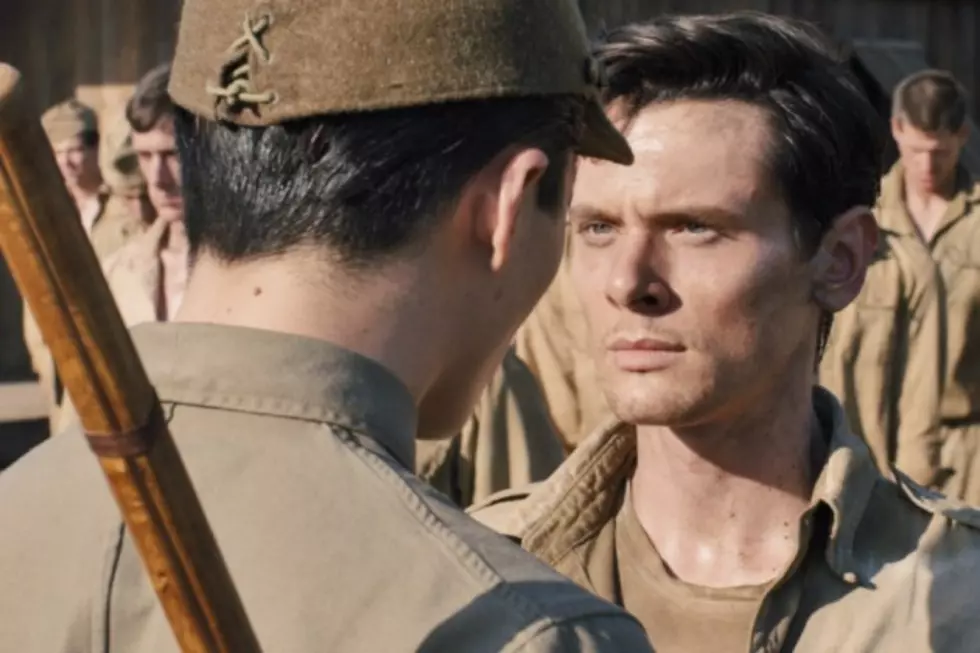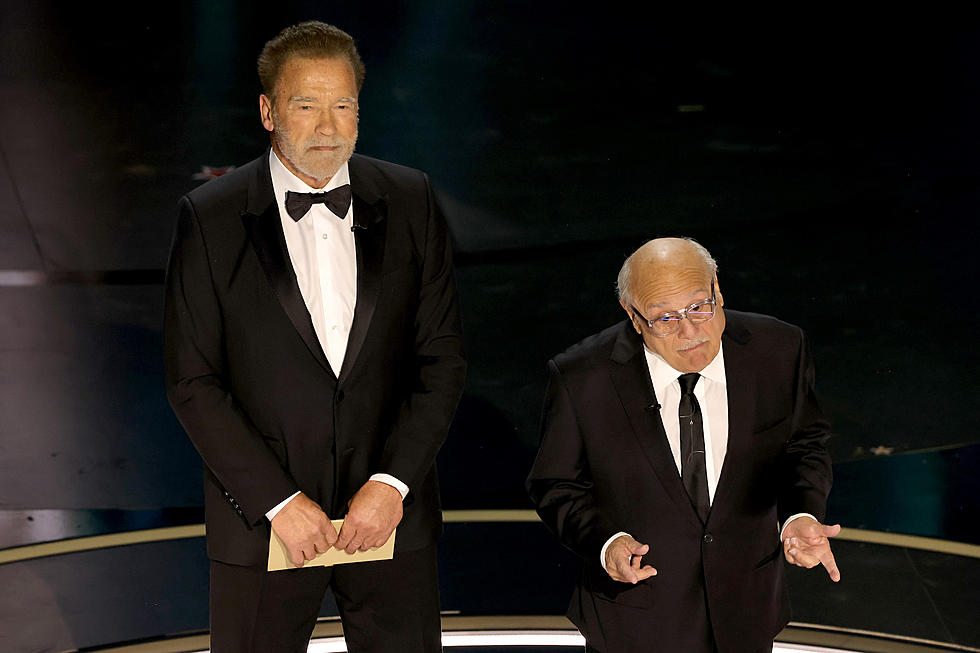
‘Unbroken’: Maybe Not All Great Stories Are Meant to Be Movies
Maybe not every story about the sheer determination of the human spirit over impossible odds needs to be a movie. This was my thought while watching Angelina Jolie’s ‘Unbroken,’ the true story of Louis Zamperini (played by rising star Jack O’Connell), a World War II hero who is brutally beaten to within an inch of his life in a Japanese prisoner of war camp so many times that I lost count. The real life story is inspiring—and it truly is remarkable that he survived—but to watch it play out in front of your eyes over and over and over again almost feels sadistic. It gets to the point that every time we see O’Connell on screen, we automatically think, “I bet this poor man is going to get beaten again, isn’t he?” And we are always right.
We’ve seen a lot of biopics over the last few weeks. And it’s not really Jolie’s fault here that so many of them decided to use “flashbacks to childhood” as a framing device—‘The Imitation Game’ and ‘The Theory of Everything’ both use versions of this—but, yet, here we are again! And when we cut from a fairly thrilling opening air raid sequence high over the Pacific to young Louis Zamperini sitting in church, the momentum is gone. It just feels so, Oh, THIS again.
I’m not going to pretend that I’m an editor, but for the life of me, I can’t figure out why some of these childhood scenes weren’t cut out of this movie’s already healthy running time. Young Louis likes to drink and smoke and steal and fight (it’s these flashbacks that are riddled with clunky dialogue), until he discovers running—a sport that eventually led him to the infamous 1936 Olympics in Berlin.
In a perfect cinematic world, Zamperini would have competed in the Olympics after the war—leading to a crescendo of sorts; a great thing to happen to a seemingly nice man who went through a terrible thing. But, that’s not what happened. (Though, ‘Unbroken’ does fudge the timeline a little; a race in which Zamperini is relentlessly spiked throughout is depicted as happening before the Olympics, but had occurred two years after.)
The thing is, Zamperini’s racing career and his military service are two separate stories. They do not overlap and he does not return to racing after. It’s an interesting footnote to Zamperini’s ordeal, but it’s hard to make it a focal point of the story, which ‘Unbroken’ really tries to do. What ‘Unbroken’ is trying to say is, “Louis Zamperini finished eighth at the Olympics (Jolie edits the race in a way that we're almost led to believe he won) and then, seven years later, survived a horrific ordeal. You see how that’s connected, right?” Both stories are interesting, but this film really wants them to connect and they just don’t.
Eventually, the story shifts back to the war. On a search and rescue mission, Zamperini’s plane crashes in the Pacific and he and two other survivors are stranded in the middle of the ocean for 47 days. Jolie doesn’t gloss over this aspect of Zamperini’s story—we spend a long time watching three men float in a raft and try to catch fish. To be fair, it does give us the sense of just how long this ordeal lasted, but, by the time the Japanese navy finds them, well, things don’t get better.
For the remaining duration of the film—and there’s a lot of film left—we watch a man be beaten an almost endless amount of times. It’s honestly hard to watch and I suppose that’s the point, but I’m not exactly sure what this accomplishes. At one point, a fellow prisoner named John Fitzgerald tells Zamperini that the best way to beat his sadistic captor—an English-speaking sociopath nicknamed “The Bird”; a breakout role for singer-songwriter Miyavi, his first film role—is “to survive.” And that’s basically the rest of the movie, watching O’Connell play a man who is desperately trying not to die.
I feel like I’m probably being harsher on this film than I intend to be. The performances are excellent—Jack O’Connell really is going to be a star—and the film looks beautiful (which isn’t too much of a surprise with Roger Deakins behind the camera). And this really is a great story and Mr. Zamperini had a truly remarkable life, but just because it’s a great story doesn’t mean it needs to be a movie.
Mike Ryan has written for The Huffington Post, Wired, Vanity Fair and GQ. He is the senior editor of ScreenCrush. You can contact him directly on Twitter.
More From ScreenCrush









